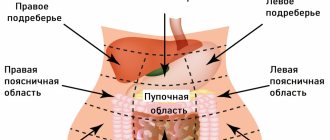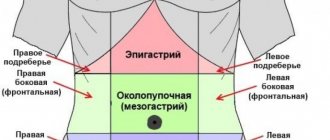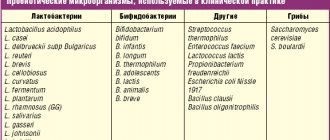Causes of constipation
The rhythm of life of a modern person does not allow him to leave time for preparing healthy and wholesome food. The diet consists of semi-finished products, sausages, sausages, a variety of frozen foods and other fast food dishes. Drinking the required volume of water is also an almost impossible task, and this is what leads to a slowdown in metabolic processes. What do we get in the end? At best, poor complexion, tired appearance and lack of appetite. Later, pain will definitely appear in the lower left part of the abdomen. All this suggests that the process of developing chronic constipation has begun. Every adult should know which doctor to contact for constipation, because this condition is much more serious than it seems at first glance.
This disease can take anyone by surprise, but there are those who are especially susceptible to it. Constipation in infancy may indicate insufficient feeding or poor absorption of nutrients. During pregnancy, the intestines are compressed by the enlarged uterus or affected by altered hormonal levels, which leads to difficult bowel movements. Weakened intestinal muscles, changes in the functioning of the endocrine glands, and constipation are common in older people. Which doctor should an adult with constipation see? This should only be a competent gastroenterologist who will quickly and effectively alleviate the condition.
Symptoms of the disease
Diagnosis of constipation is carried out according to the following signs:
- an adult has bowel movements less than 3 times a week;
- bowel movements of a baby when feeding milk less than 2 times a day and less than 1 time a day when feeding him with formulas;
- a child aged 1-3 years stools less than 5 times a week;
- bowel movements less than 3 times a week in a child over 3 years of age;
- stool is dry and hard.
Symptoms will depend on the classification of the disease. Not every adult knows which doctor to see for constant constipation. A gastroenterologist will quickly determine the cause of the disease and conduct a competent diagnosis.
Classification
Today there is no unified classification of constipation, but the pathology is usually considered depending on the cause of occurrence and stage of development. The causes of constipation allow us to distinguish certain types of bowel movements:
- primary constipation - occurs due to pathology of the rectum of an acquired or congenital nature;
- secondary constipation - are the consequences of diseases or injuries;
- idiopathic constipation - occurs due to impaired intestinal motor function for unknown reasons.
The doctor can also diagnose acute or chronic course of the disease. If there is no bowel movement for several days, constipation is considered acute.
Which doctor should I go to for which symptoms?
Constipation is not only the absence of bowel movements. In addition to the main problem, there are many related ones. Depending on their nature, the question of which doctor to go to for constipation is decided.
Gastroenterologist
The doors to this specialist’s office are open to patients with constipation accompanied by:
- sharp or nagging pain in the abdominal region or lower abdomen;
- excessive gas formation, belching, bloating, feeling of fullness;
- bad breath and/or bad taste in the mouth;
- loss of appetite;
- gagging;
- lethargy and muscle pain;
- skin rash problems.
Chronic bowel problems do not appear on their own. As a rule, this is the result of gastrointestinal diseases. The task of a gastroenterologist is to identify the root cause of constipation and act on it, and not just to facilitate or improve bowel movements.
To determine the starting point of the onset of constipation, doctors resort to various research methods: tests, ultrasound, colonoscopy, tomography, irrigoscopy (X-ray)
Proctologist
There are often cases when the causes of stool retention are pathologies of the rectum. A thorough analysis of your feelings and the body’s reaction during constipation will help you understand that you need to contact a specialist of this particular profile.
You should make an appointment with a proctologist if:
- age over 40 years is a milestone beyond which the patient’s risk of developing rectal cancer increases with each passing year;
- fecal matter contains inclusions of blood and/or mucus;
- rectal bleeding occurs;
- there are signs of obstruction - stone stool does not leave the body, despite the efforts made (enemas, suppositories, laxatives), the abdominal cavity is swollen, cutting pain, vomiting;
- significant and sudden weight loss occurred.
When consultations with related specialists are needed
In cases where a proctologist, gastroenterologist or general practitioner suspects the need for surgical intervention, a consultation with a surgeon is scheduled. If the presence of neoplasms is suspected, a referral to an oncologist is issued.
If it is revealed that the motor function of the intestine is impaired and the reason for the difficulty of defecation lies precisely in it, then it will not be possible to do without the participation of an endocrinologist. Since peristalsis is directly proportional to hormonal imbalance, thyroid or pancreas dysfunction.
An initial contact with a therapist, as a generalist, will help determine the need to consult with a specialist. It is quite possible that the patient’s fears are greatly exaggerated, and gentle measures are sufficient to normalize stool. In this case, the doctor will adjust the diet for constipation, prescribe a laxative - and the problem will be solved.
Take care of yourself and be healthy!
Constipation in children
In infancy, problems with bowel movements may arise due to the immature nervous system and adaptation of the child's digestive organs. There are many other reasons for the development of this condition: too early introduction of complementary foods, lack of vitamin D, food allergies, incorrect change of formula and much more.
At the age of 1 to 3 years, constipation is most often caused by poor diet, lack of fiber or fluid. There is also a psychogenic etiology for the development of the disease. The main reasons are improper potty training and forced retention on it. Often, parents severely scold their child for incontinence. When starting to attend preschool children's institutions, the baby experiences stress; changes in diet and lifestyle affect the emotional background and can lead to constipation.
Not every parent knows which doctor to see for constipation in a child. The first consultation is carried out by a pediatrician who will conduct a survey and visual examination. Next, you will need to consult a gastroenterologist.
Examination and doctor's appointments at the appointment
The large number of causes of constipation makes it necessary to collect a detailed medical history. The following data is taken into account:
- Regularity of constipation, presence of other problems with bowel movements.
- Gases, frequency of emission, its quantity.
- Structure of feces (homogeneity, fragmentation).
- Lately diet.
- Lifestyle during the period of constipation.
- Pain before, during and after bowel movements.
- The urge to defecate, its frequency.
- Presence of other diseases.
After drawing up the initial clinical picture, they begin taking tests and examining the intestines.
| Method | Description |
| Rectal diagnostics | Simple and fast way. The proctologist puts on a glove, lubricates the index finger and inserts it into the patient's anus. This allows you to study the condition of the sphincter, detect traces of damage to the intestinal epithelium (blood and mucus will remain on the finger). Based on the results, a decision is made on further data collection. |
| Stool collection | A laboratory analysis of stool will give a picture of the intestinal microflora, the functioning of the glands, the presence or absence of parasites, and the supply of the body with necessary substances. |
| Blood collection | Allows you to detect or exclude a number of causes of constipation, incl. associated with thyroid dysfunction. |
| Colonic test | A laboratory test to determine the duration of movement of chyme (the contents of the gastrointestinal tract) through the intestines. |
| Endoscopy/colonoscopy/sigmoidoscopy | Insertion of a probe with a camera into the rectum for visual diagnosis of intestinal condition. |
| Irrigography | X-ray examination. Carried out using a special contrast agent, it allows you to establish the condition of each section of the large intestine and create a picture of the walls and intestinal mucosa. |
| Abdominal ultrasound | Non-invasive inspection using a convex probe. Safe, painless, highly informative study. |
| CT scan | The most accurate diagnostic option identifies all areas of the gastrointestinal tract, relief and problem areas. |
If the ailment does not require complex therapy, a diet is drawn up and a number of medications are prescribed. Plant foods rich in fiber will change the composition of feces, medications will finish what they started and normalize stool.
Treatment only works in combination; failure to adhere to the diet, even when taking medications accurately, can result in a repeat visit to the hospital.
To flush out accumulated feces, enemas are prescribed. Their composition may change; after cleansing the intestines, a medicinal solution is administered. To develop stagnant organs, a course of exercise therapy (physical therapy) is prescribed.
If the cause of intestinal atony is a medication with a side effect, it is recommended to stop taking it and use a safe alternative.
Do I need to treat?
Constipation is not a disease; rather, it is a symptom of certain disorders in the body. This condition must be treated to avoid irreversible consequences in the future. Unfortunately, not many people know what dangers lie in frequent and prolonged constipation, but the condition is extremely dangerous for human health. Here are some of the consequences:
- diseases of the gastrointestinal tract;
- the formation of polyps and tumors in the intestines;
- intestinal obstruction;
- intoxication of the body.
If you don’t know which doctor to see for constipation, then first you can make an appointment with a therapist, who will give further referrals for diagnosis and consultation with specialists.
Which doctor treats constipation?
First of all, you need to contact a therapist and describe in detail all the symptoms and complaints in order to compile a competent medical history. Being a broad specialist, the therapist will prescribe initial tests and studies, and then refer you to a specific doctor who specializes in the treatment of constipation.
Patients hear that there are two medical specializations that treat the intestines:
- A gastroenterologist is a specialist who identifies and treats diseases of the gastrointestinal tract: gastritis, stomach and intestinal ulcers.
- A proctologist deals with the treatment and prevention of diseases of the intestines and anus - hemorrhoids, colitis, Crohn's disease, anal fissures.
Treatment
Not only the treatment of constipation, but also its prevention is carried out mainly by establishing a diet and drawing up a rational menu. If constipation is already chronic, then it is important to remember that there are provocative foods on the menu that will increase the efficiency of bowel movements.
These products will help you go to the toilet faster:
- Rye bread or products with bran.
- Dried fruits.
- Vegetables and fruits in raw form.
- Buckwheat and oatmeal.
- Pickled cucumbers and sauerkraut.
- Kvass and beer, but only naturally fermented.
- Large amount of water.
- Lean meats.
Before starting any diet, you should consult a specialist. It now becomes clear which doctor to consult for constipation. A gastroenterologist will not only advise on taking medications, but will also create a competent diet.
The most important thing a specialist should do is to determine the cause of constipation. In some cases, the patient should not eat a lot of fruits and vegetables, as this will provoke increased intestinal motility and can cause painful bloating. Fiber is administered in small quantities with the addition of antispastic drugs.
Laxatives
Sometimes a person is worried not just about a heavy bowel movement, but about a more serious condition. Not everyone understands which doctor to consult for prolonged constipation. In this case, you should not waste time and go to a therapist; you can safely go to an appointment with a gastroenterologist for immediate help. Usually the doctor prescribes a laxative, but whether this step is necessary is a rather controversial issue.
Laxatives cause rapid addiction, and then the patient’s condition may even worsen. Most studies have shown that taking such drugs and remedies is not necessary. Medications are prescribed only by a doctor and only after the cause of the condition has been established. Enemas or microenemas are usually self-administered by patients for quick relief, but are also highly addictive.
How often do problems with stool make themselves felt?
Problems with stool do not necessarily have to be frequent and recurring. There are often isolated cases of constipation, which, nevertheless, cause a lot of trouble.
Occasional constipation
If this is a one-time phenomenon, you know the root cause of the problem (be it nervous stress, a sudden change in weather, or you allowed yourself to drink too much), perhaps a visit to the clinic is not required at all. A mild medicated laxative or folk remedy, or at worst an enema, will help restore digestion.
However, if the anxious feelings do not go away and relief does not come (the probability of such a situation is small, but still exists), do not panic. The first thing to do is see a therapist. Tell him about the problem, symptoms, what preceded stool retention. A look from the outside, especially from a specialist, will help you cope with constipation faster.
It may well be that you simply used too mild a laxative or are experiencing prolonged nervous tension. The doctor will prescribe medications that, when taken, will help you forget about constipation.
Recurrent or persistent bowel problems
A situation where defecation delays become constant companions should alert you and force you to consult a doctor without fail.
You should not hope that the problem will solve itself. Delaying treatment is a crime against your health!
Chronic and recurrent constipation occurs due to problems in the normal functioning of the intestines or rectum. In the first case, the situation is corrected by a gastroenterologist, in the second - by a proctologist. To understand which doctor to see, you need to listen to yourself, observe the symptoms and then make a decision.
Urgent measures
If the situation turns out to be an emergency, an oil enema or a water enema is used. A regular water enema is less effective, so a large volume of liquid is needed. So the patient may feel discomfort, especially for children. The already mentioned microenemas called “Microlax” also bring quick relief, but you should not abuse them, because you can cause a burning sensation in the rectum. Pregnant women need to be especially careful about this situation. A woman with constipation, especially during pregnancy, does not always know which doctor to see. To begin with, you can go for a consultation with a gynecologist if we are talking about the period of pregnancy, and if not, then a gastroenterologist will also help here.
Causes of frequent constipation
The main causes of frequent constipation in adults are usually the following:
- Idiopathic constipation. This includes irritable bowel syndrome and functional constipation; delayed passage or functional defecation disorders may be observed.
- Diseases of the large intestine, such as diverticulosis, cancer, other neoplasms, hernia, volvulus.
- Diseases of the rectum and anus, such as narrowing of the anus, hemorrhoids, cancer, anal fissure, rectal diverticulum, rectal prolapse.
- Medicines.
- Pelvic diseases. (endometriosis, ovarian and uterine tumors).
- Diseases of the peripheral nervous system. These include Hirschsprung's disease, autonomic neuropathy, Chagas disease, and intestinal pseudo-obstruction.
- CNS diseases: Parkinson's disease, cerebrovascular disease, multiple sclerosis, spinal cord tumors, post-traumatic injury to the spinal cord or brain.
- Metabolic disorders or diseases of the endocrine glands (diabetes mellitus, hypothyroidism, pheochromocytoma, hypopituitarism, porphyria, hyperparathyroidism, uremia, hypokalemia, hypercalcemia).
- Pregnancy.
- Mental illnesses such as depression or anorexia.
- Connective tissue diseases such as dermatopolymyositis or systemic scleroderma.
Physiotherapy
Exercise therapy is great for those who do not want to use medications or use untested folk remedies. A few simple exercises will help your intestines work with renewed vigor, and you can do them right at home.
- The familiar “bicycle” will help you stretch your muscles. You need to lie on the floor and twist your legs as if you were pedaling, after which each leg should be bent and pressed to your stomach.
- Place your knees and palms on the floor, squat on your hips, and then alternately stretch your legs back with your back arched.
Such simple exercises will not only improve bowel function, but also increase blood flow and strengthen the pelvic muscles. Such physical education improves a person’s overall well-being.
Now it has become known which doctor to consult for prolonged constipation and what measures need to be taken to eliminate the unpleasant manifestations of the pathology. Do not underestimate the condition, because it often leads to irreversible and very serious consequences.











